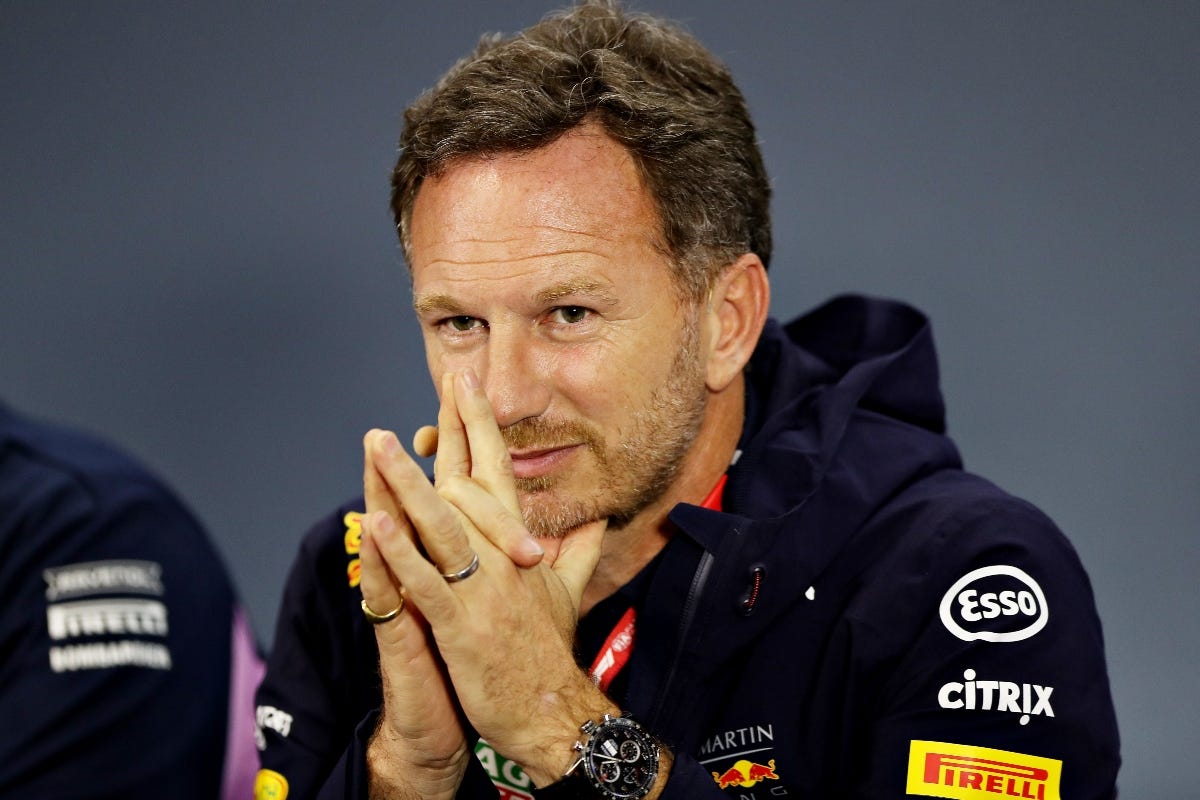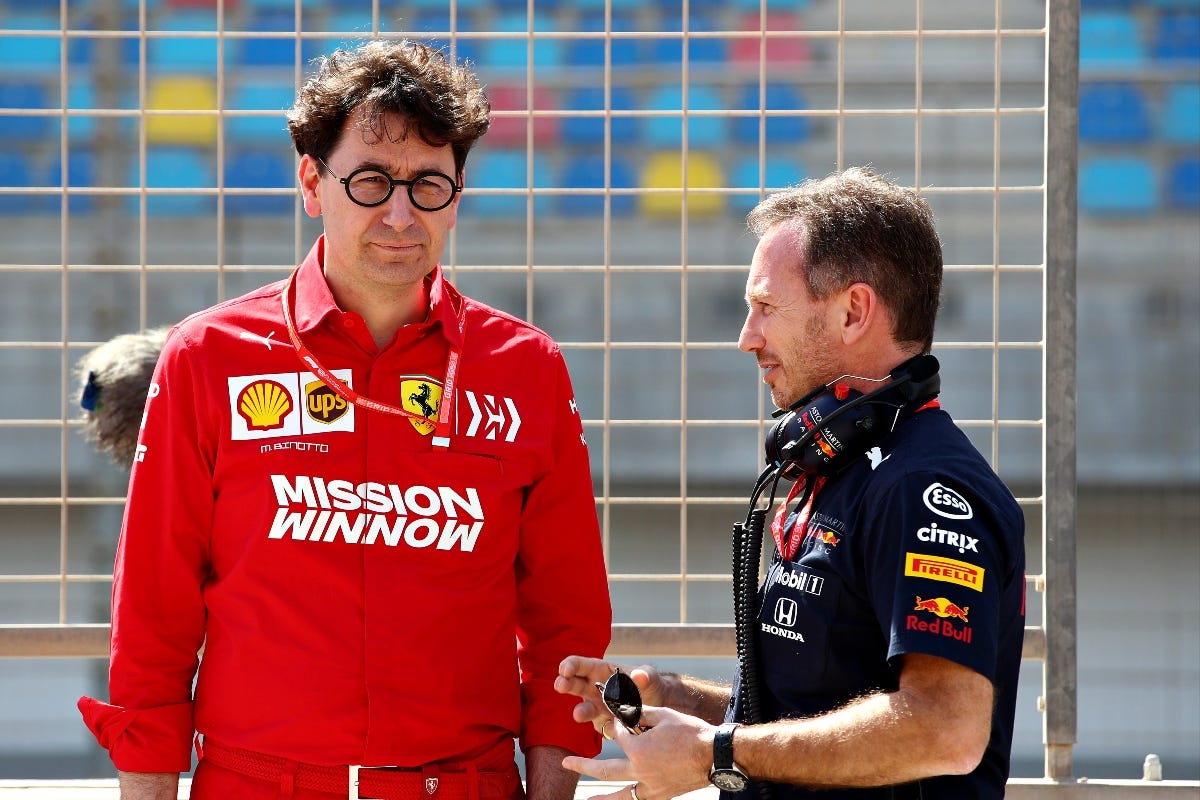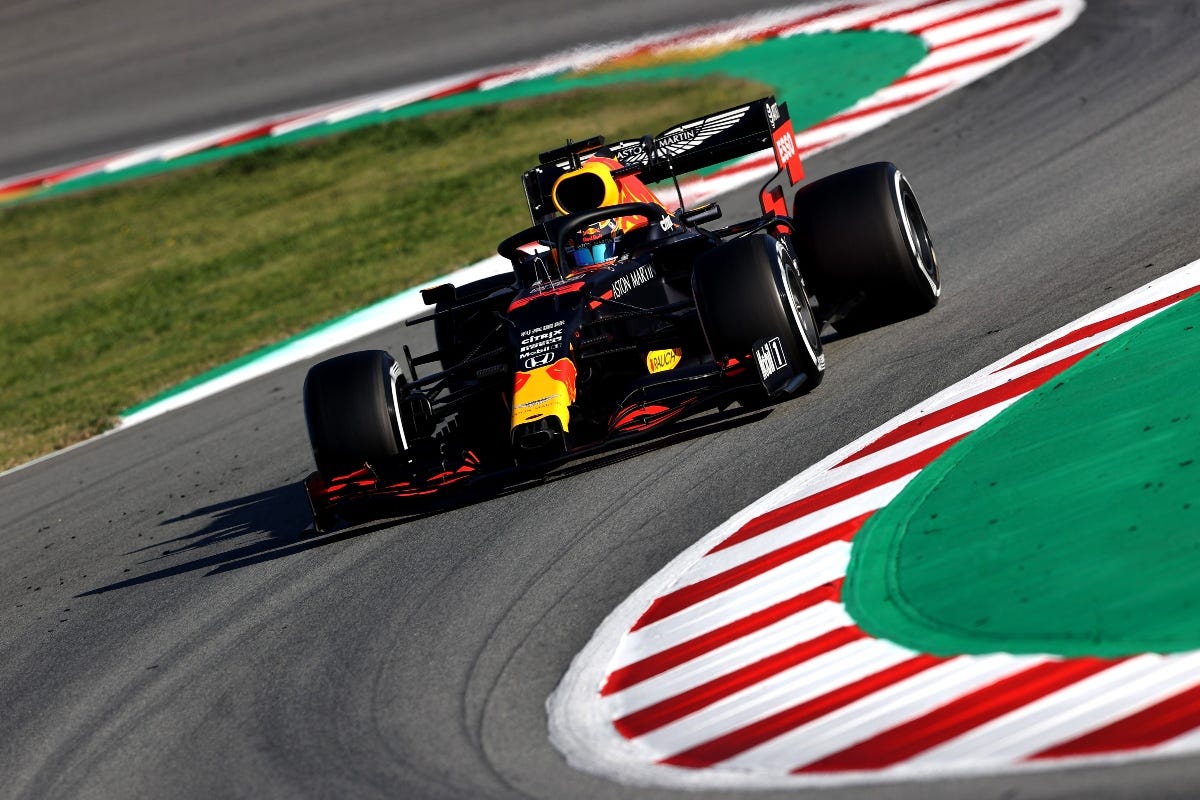Christian Horner says customer cars could solve Formula 1's 'crisis'
The Red Bull boss says something needs to be done to make the sport's privateers competitive and ensure they get through the coronavirus crisis. But, instead of a cost cap, he wants customer cars.

Christian Horner says a cost cap is not the way for Formula 1 to navigate the “crisis” posed by coronavirus and he believes customer cars would be a better option, adding that he’d “be fully open” to selling Red Bull’s 2020 car to another team at the end of the year.
Formula 1 teams have agreed to reduce the cost cap, due to be introduced in 2021, from $175 million to $145 million - but not everyone, namely Ferrari and Red Bull, has been supportive of the move.
[Read about how McLaren wanted a far lower cost cap, while Ferrari threatened to quit]
Now, Christian Horner has published a blog post in which he says the cost cap is “missing the point” and he believes customer cars - something never seen before in Formula 1 - should be a “serious consideration”.
“Some people say that customer cars are against F1’s DNA to design and build your own car, well times have changed and we need to find the best way to make the smaller teams competitive and survive the current crisis,” Horner wrote.

Customer cars would allow one team to buy a car from another - and Horner suggests that smaller teams could buy cars used by the top teams in the previous season.
In the turbo-hybrid era, the relative performance gap between Formula 1’s privateers and manufacturers has significantly widened. Only Mercedes, Ferrari, and Red Bull have won races in the past six seasons.
Given the gap, some privateers have tried new ways of innovating. Haas, since their birth in 2016, has partnered with Italian chassis manufacturer Dallara to build their car, while the 2020 Force India car took direct inspiration from last year’s Mercedes.
Horner said the research and development cost of building a car drove up the underlying cost of running of Formula 1 team - hence his idea for customer cars, which, for example, would allow Alpha Tauri to run the 2019 Red Bull.

Horner said it was impossible to compare spending between the teams because they all have different structures and business models.
Exact budgets are an unknown, but according to Forbes, Mercedes and Ferrari spend upward of £400 million pounds per season, compared to Haas and Force India, who spend just over £100 million.
Horner says he’s committed to reducing costs in Formula 1 but says there are multiple ways to do that. “I truly believe the customer car solution could help in the short term.”
McLaren chief executive Zak Brown, on the other hand, is convinced Formula 1 needs a cost cap of $100 million. He told the BBC in April that Formula 1 was “in a very fragile state” and that up to four teams would disappear if this crisis wasn’t managed correctly.




